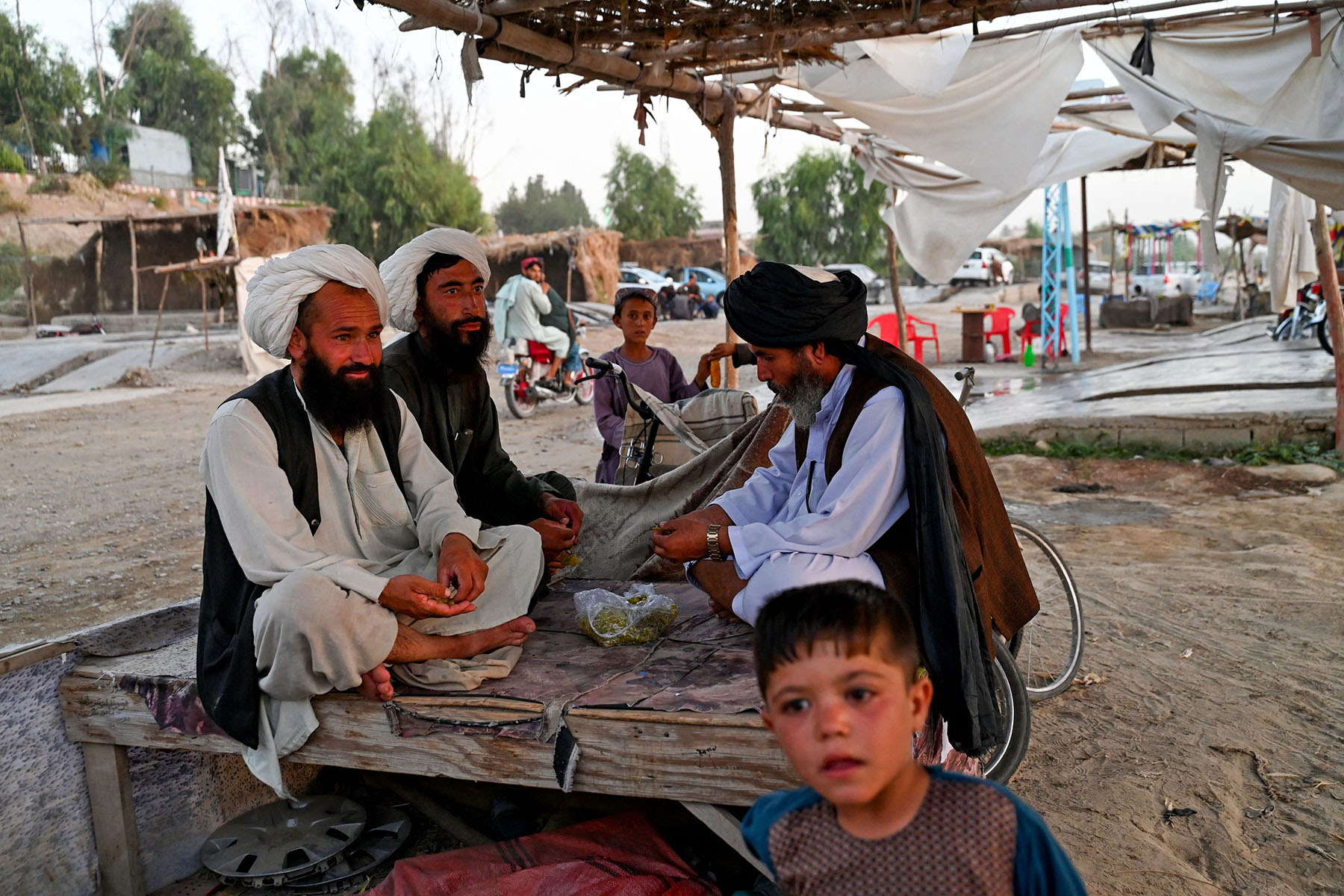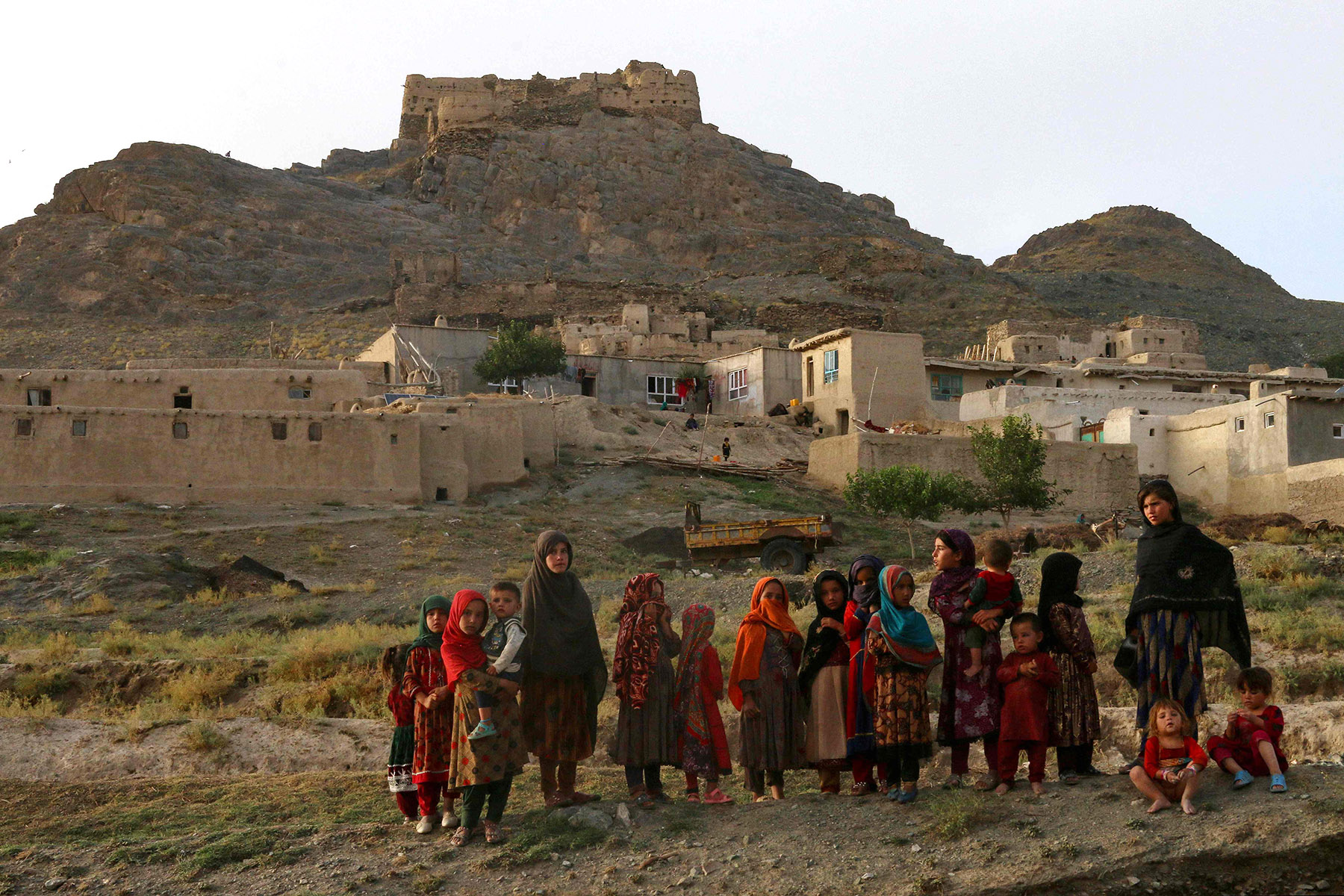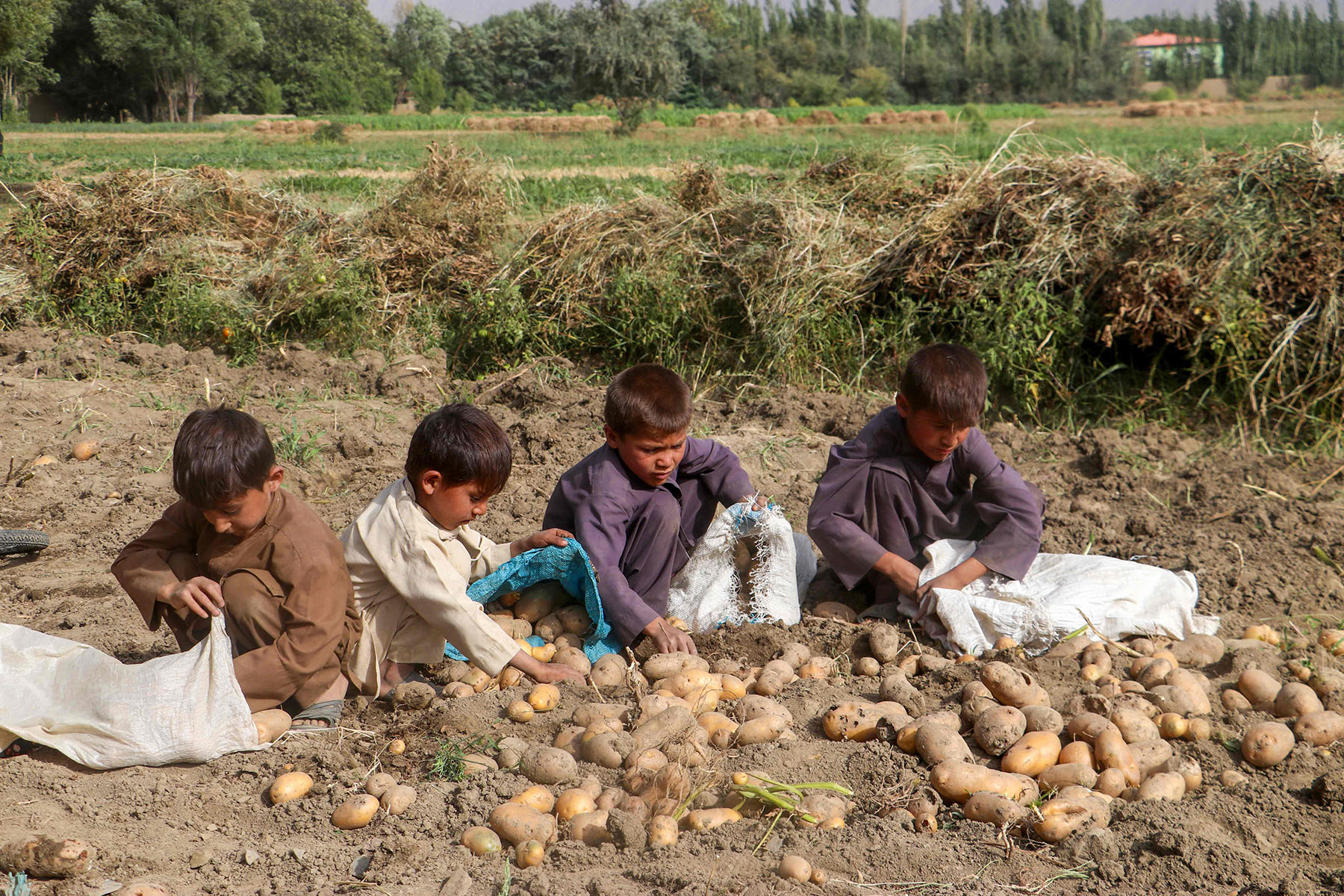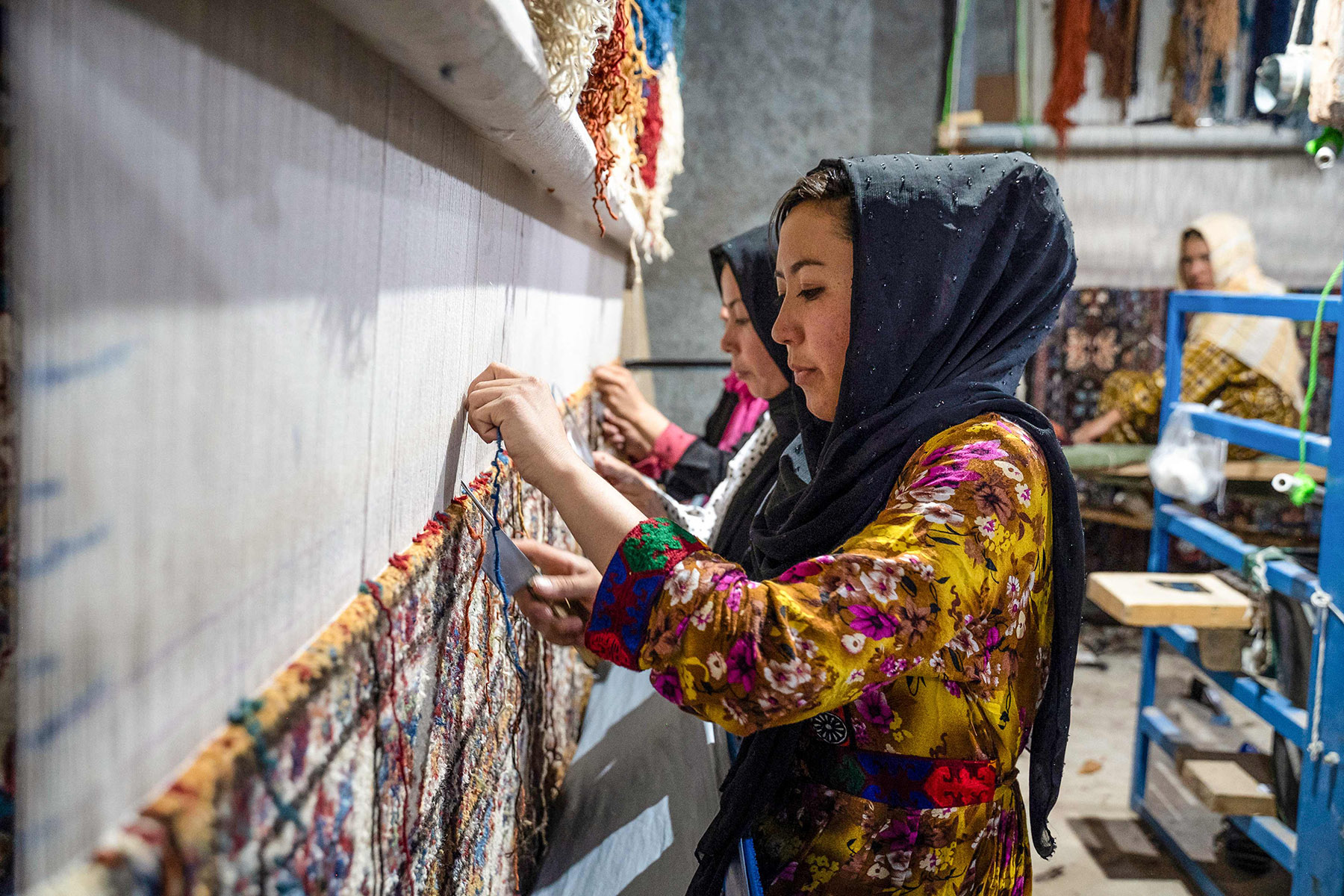Taliban is working to develop the war-torn country amid sanctions in the wake of Washington's 20-year military campaign

Editor's note: Three years on from the withdrawal of US troops from Afghanistan, the Asian country is still suffering the consequences of the failed military operation. However, there is optimism among the Afghan people for the future. China Daily takes a look at how the country is recovering.
Three years after the United States' abrupt and chaotic withdrawal from Afghanistan, the Asian nation continues to suffer the consequences of Washington's 20-year military intervention, with millions of Afghans reeling from a destructive legacy of conflict and socioeconomic instability.
Since retaking control of the country in August 2021 following the departure of US-led coalition forces, the Taliban has worked to develop the country and improve the livelihood of the people. However, the efforts have been hindered by the sanctions of the US and its allies, with billions in assets of Afghanistan's central bank frozen by Western powers.
Political and diplomatic isolation adds to the problems faced by Afghanistan's caretaker government, on top of problems such as terrorism and recurrent natural disasters, as it tries to steer the country out of a sharp economic downturn and mitigate poverty, analysts said.
Despite all the woes, there was a mood of celebration in the country this month as Afghans marked the third anniversary of the US pullout. Streets and buildings in the capital Kabul were decorated with flags and slogans plastered on walls were filled with messages such as "congratulation to freedom" and "Afghan nation defeated America".
READ MORE: Taliban codify morality laws asking Afghan women to cover faces, men to grow beards
On Aug 15, 2021, the Taliban entered Kabul and took power as US and NATO forces began pulling out from the country after two decades of occupation and war. That day has been declared by the Afghan administration as "Victory Day" and marked as a public holiday.
On Aug 31, 2021, the last US troops left Afghanistan, leaving a war-battered and even more impoverished country behind. Incomplete statistics show the war killed 174,000 Afghans, including more than 30,000 civilians and made nearly one-third of the population homeless.
The US abandoned Afghanistan, leaving behind a shattered economy, widespread poverty and a humanitarian disaster, said Tahir Farooq, editor-in-chief of the Daily Ittehad Media Group and Pakistan Economic Net, a news service in Pakistan.
"The country is left in ruins, a testament to the devastating impact of American imperialism," he said. "This was not a mistake but a deliberate strategy, rooted in a history of American interventions that destabilize nations, sow chaos, and then walk away, indifferent to the suffering left in their wake."

Humanitarian crisis
"Afghanistan is entrenched in a humanitarian crisis … (due to) the dire consequences of the two-decade-long American occupation that ended in 2021", said Khalid Taimur Akram, executive director of Pakistan Research Center for a Community with Shared Future, Islamabad.
The current humanitarian crisis is stark, with the Global Hunger Index ranking Afghanistan 114th out of 125 countries in 2023. According to the United Nations Development Programme, 34 million Afghans, accounting for 85 percent of the population, were living below the poverty line by the end of 2022.
More than 24 percent of Afghan children between 5 and 17 years of age experience anxiety in the war-ravaged country, according to a report released by the United Nations International Children's Emergency Fund last month.
"Children in Afghanistan face severe mental health concerns," according to the report. About 15 percent of Afghan children experience depression. Conflict, migration, displacement, natural disasters, high levels of poverty and risks of harm from explosive ordinances all have exacerbated mental health challenges among the Afghan children, it said.
The dire situation in Afghanistan is compounded by a sharp decline in international aid and the isolation of its interim government on the global stage. "The US and its allies' refusal to recognize the Taliban government has hindered diplomatic efforts," Akram said.
Wang Shida, deputy director of the Institute of South Asian Studies at the Beijing-based China Institutes of Contemporary International Relations, noted the US has evidently made an effort to isolate Afghanistan from the international community, as Taliban retaking control after 20 years of US occupation certainly does not portray the superpower in a positive light and constantly reminds the world of Washington's failure on the soil of the South Asian nation.
The conflict not only claimed countless Afghan lives but it also meant two decades of lost economic development and the Afghan people are now still paying the price, according to local officials.

Countless hospitals, schools, houses and even wedding halls and wedding parties had been bombarded during the 20-year brutal military presence of the US troops. Infrastructure facilities including roads and bridges have been badly damaged or destroyed.
More importantly, the subsequent US sanctions slapped on Afghanistan following the Western troop pullout, and the freezing of more than $7 billion in Afghan central bank assets, have further exacerbated the situation, leaving Afghanistan on the brink of economic collapse.
Over the past two years, Afghanistan's economy has been characterized by a tumultuous downturn, with a staggering 26 percent contraction in real GDP, according to a report released by the World Bank in April.
To facilitate economic recovery for the Afghan people, experts noted that it is essential to unlock the funds frozen by the US. "Afghanistan's wealth belongs to its people, and they alone should have the right to decide how to use it," said Akram.
In terms of security, the Taliban government, facing challenges from various terrorist groups, has struggled to manage the internal and external threats to Afghanistan's security. The power vacuum created by the US exit has fueled violence and extremism. Lack of cooperation from the US even on counterterrorism efforts has undermined the Taliban's ability to combat the threats effectively, said analysts.
Moreover, risks posed by the 1,228 cluster bombs containing 248,056 bomblets dropped by US forces linger, according to the US Cluster Munition Coalition. Medical charity Doctors Without Borders noted that more than 20 percent of the bombs did not explode on impact and remain active on the ground in Afghanistan, remaining a source of civilian casualties.
Washington failed to achieve anything resembling stability — instead, the reckless withdrawal left Afghanistan in chaos, Farooq from Pakistan said.
"This catastrophic outcome is not unique to Afghanistan; it is part of a broader pattern of US foreign policy failures, where countries are left more unstable and dangerous than before," said Farooq. "The world must recognize and reject the hollow promises of US involvement, which bring nothing but ruin and despair."
Simply put, the US made the decision to send its troops to Afghanistan based on its own interests and demands, rather than the wishes of the Afghans, Wang said. Similarly, acts such as the departure from Afghanistan stemmed from the priorities of US foreign policies and security strategy at different periods of time. "They rarely consider the welfare of Afghans," he added.

Rebuilding the country
The Taliban has played an active role in trying to rebuild the country after the US troops left. In mid-August, the Afghan caretaker government's acting minister for industry and commerce, Nooruddin Azizi, said that more than $7 billion had been invested in Afghanistan over the past three years, of which $500 million was invested in the industry sector, Afghan media outlet Tolonews reported.
Urging Afghan and foreign companies to invest in the country, the official said the administration will spare no efforts to encourage more companies to invest and increase investment in all sectors including agriculture, mining and power.
The caretaker government has also vowed to crack down on criminal elements to ensure law and order in the war-ravaged nation.
According to the Global Terrorism Index, terror deaths fell by 519 in Afghanistan in 2023, an 81 percent improvement. This was the first year since 2019 that Afghanistan has not been the country most impacted by terrorism.
Mohammadajan, a street vendor in Kabul, said three years ago, when he heard that the Taliban was going to enter the city, he saw through the window that people on the street were running home in a panic.
But he soon discovered that things did not develop in the bad direction and Afghanistan finally ushered in three years of relative peace.
"The security situation here has improved 100 percent and the number of beggars and thieves on the street has also gradually decreased," Mohammadajan told Xinhua News Agency. "Our shop is open until 12 midnight and no one bothers us."
ALSO READ: US aid vetting failures 'may have benefited militants in Afghanistan'
Mullah Mohammad Hassan Akhund, acting prime minister in Afghanistan's caretaker government, called for efforts to maintain peace and security and to rebuild the war-torn country, according to a statement released by the Prime Minister's Office in mid-August.
The current opportunity provided by return to peace should be used to strengthen the administration, promote good governance, stabilize security and rebuild the country, he said.
After returning home from the UN-convened third Doha conference on Afghanistan in July, a spokesperson for the caretaker government, Zabihullah Mujahid, said that Kabul wants to have positive engagement with all countries around the world.
"The Islamic Emirate wants positive and trustable engagements with all the countries of the world," Mujahid told the media.
Akram from Islamabad called on the world to keep engaging with Afghanistan's government, as only in this way can the Afghan people "hope to overcome the country's current challenges and move toward a stable and prosperous future".
Xinhua contributed to this story.


